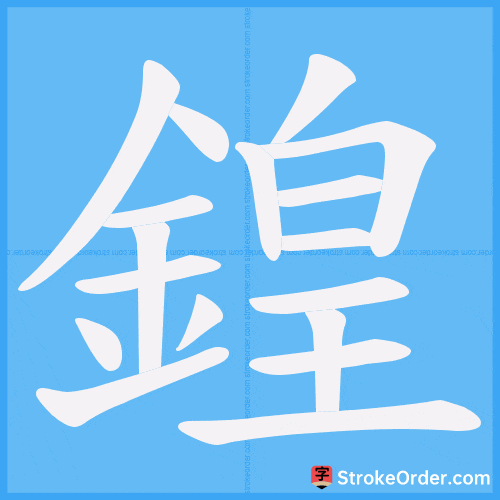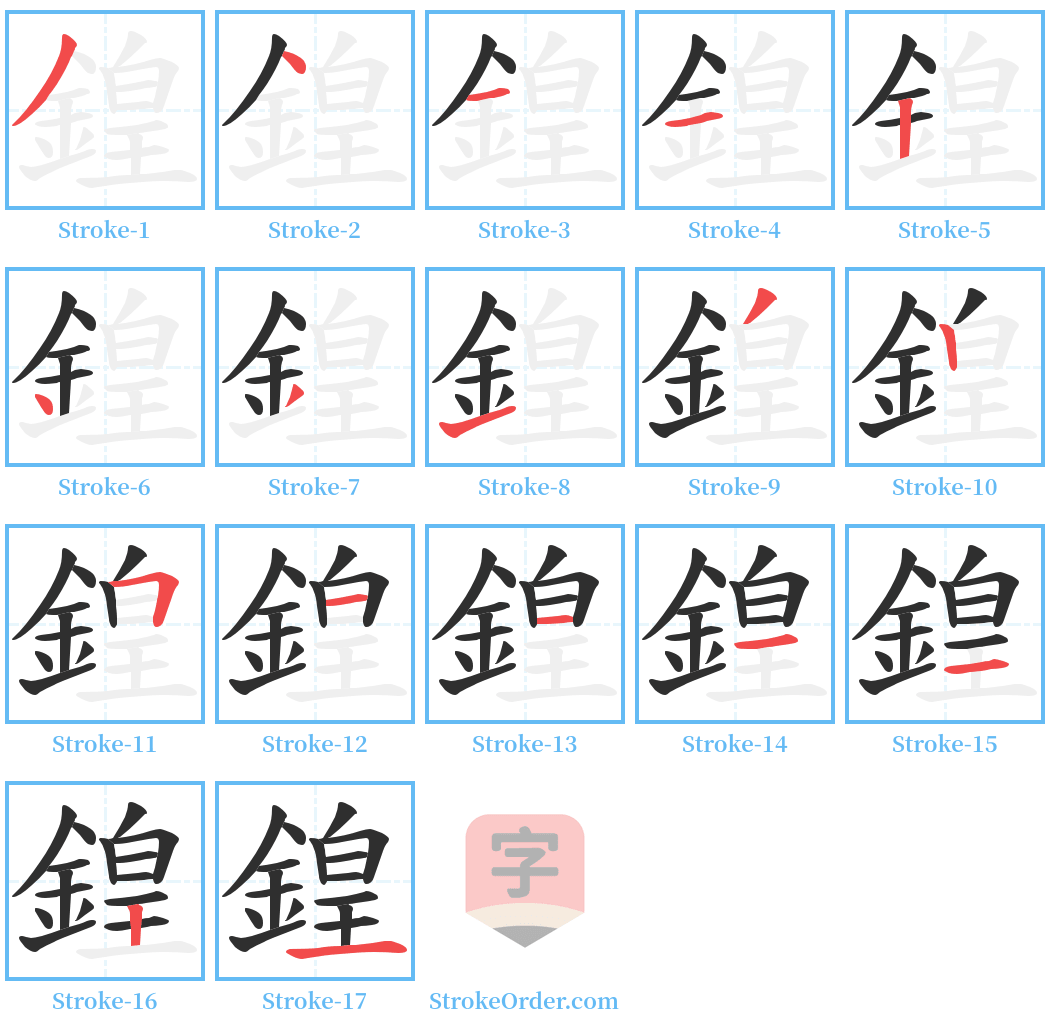鍠 Stroke Order
Animated Stroke Order of 鍠

Stroke Order Diagrams for 鍠

Information of 鍠
Pinyin
huáng
Radical
釒
Strokes
17 strokes
Usage
★★
Definition
鍠
huáng
1. 象聲詞。
Onomatopoeia.
《爾雅•釋訓》:“鍠鍠,樂也。”
"Er ya: 'huáng huáng, it is music.'"
《説文•金部》:“鍠,鐘聲也。《詩》曰:‘鐘鼓鍠鍠。’”
"Shuowen: 'huáng is the sound of bells. The Book of Songs says: 'The sound of bells and drums is huáng huáng.'”
《廣雅•釋詁四》:“鍠,聲也。”
"Guangya: 'huáng, it is a sound.'"
2. 一種似鉞的古兵器。
An ancient weapon similar to a battle axe.
《集韻•唐韻》:“鍠,兵器也。”
"Jiyun: 'huáng, it is a weapon.'"
鍠
huáng
1. 鐘聲 ([En.] sound of bells)
2. 一種似鉞的兵器。漢唐用作儀仗 ([En.] ancient weapon)
【引】
1. 《說文》:鍠,鐘聲也。
"Shuowen: huáng, it is the sound of bells."
2. 《詩·周頌·執競》:鐘鼓鍠鍠。
"The Book of Songs, Zhou Song: 'The sound of bells and drums is huáng huáng.'"
3. 《文心雕龍·原道》:至於林籟結響,調如竽瑟;泉石激韻,和若球鍠。
"Wenxin Diaolong: 'As for the sound of the forest, it resonates; its melody is like a yu se; the sound of springs and rocks harmonizes, like the sound of huáng.'"
4. 茅盾《子夜》:在他耳邊,立刻又充滿了鍠鍠鍠的鑼聲。
"Mao Dun: 'In his ears, the sound of the gongs filled with huáng huáng huáng.'”
鍠
huáng
1. 鐘聲 ([En.] sound of bells)
2. 一種似鉞的兵器。漢唐用作儀仗 ([En.] ancient weapon)
【引】
1. 《正字通》:鍠,兵器。
"Zhengzitong: 'huáng is a weapon.'"
2. 晉· 崔豹《古今注·輿服》:鍠,秦改鐵鋮作鍠,始皇制也。
"Cui Bao: 'In the Qin Dynasty, huáng was made from iron, established by the First Emperor.'"